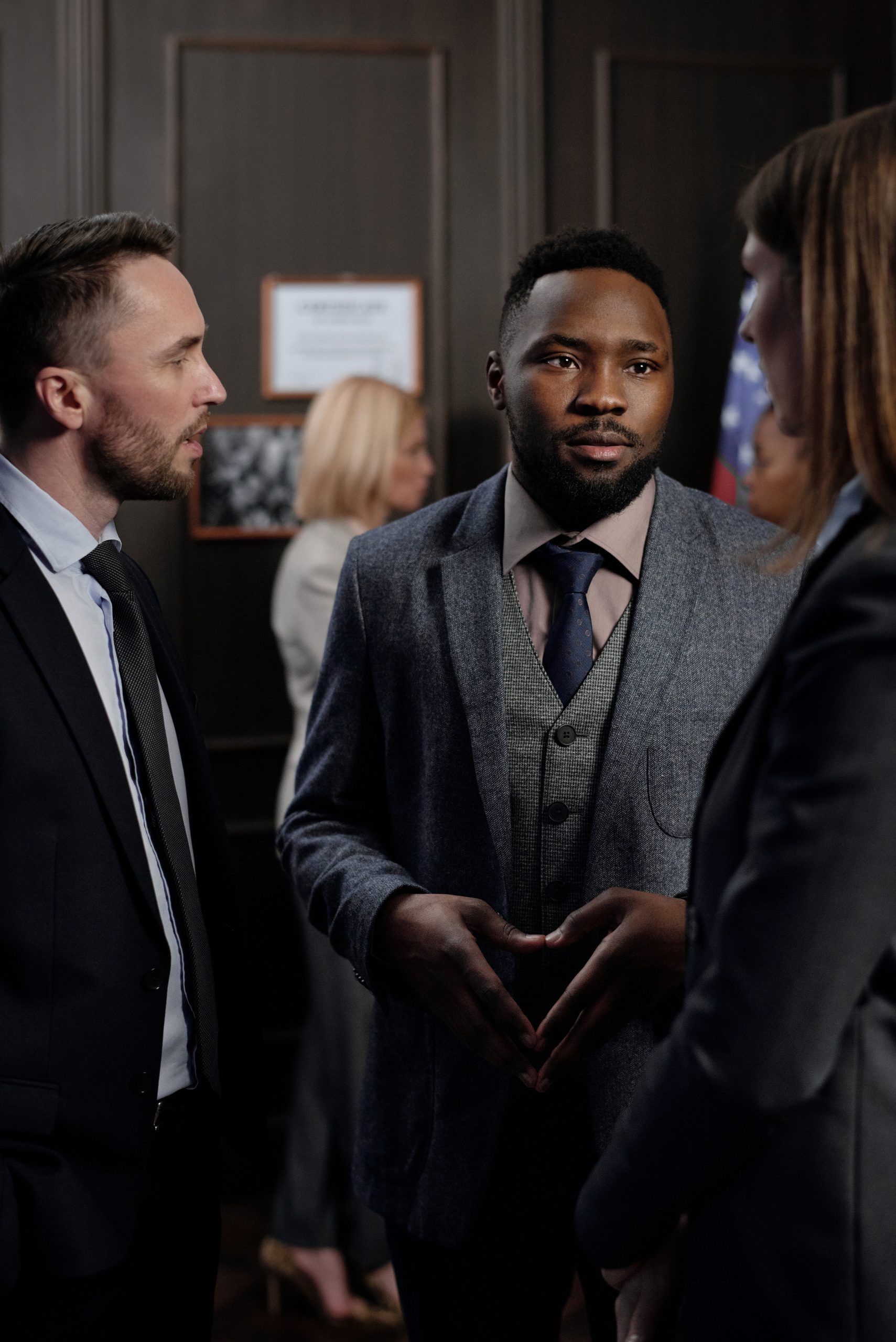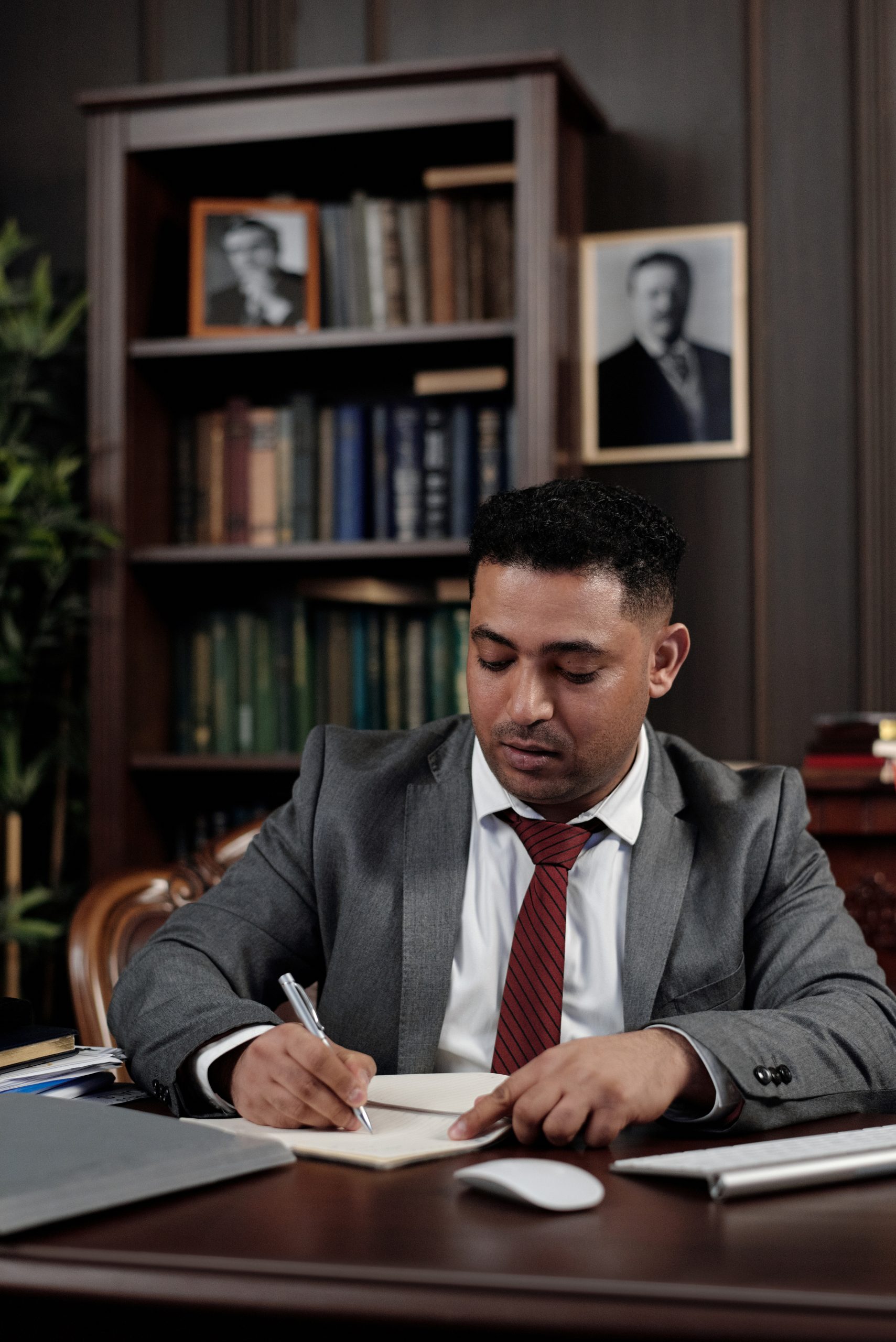Are you facing the daunting task of navigating the complex legal process surrounding probate in Price, Utah? Look no further. With extensive expertise and unwavering commitment to delivering exceptional legal services, our probate attorney is dedicated to guiding you through every step of the way. Whether you need assistance with probate administration, will and trust disputes, or estate planning, our attorney has the knowledge, experience, and strategic approach to provide you with the effective representation you deserve. Entrust your probate matters to us, and allow us to alleviate the burden and uncertainties associated with the probate process. Contact our esteemed probate attorney in Price, Utah today, and let us protect your interests with professionalism and care.
Probate Attorney Price Utah
When a loved one passes away, there are often legal matters that need to be addressed, particularly when it comes to the distribution of their assets and fulfilling their final wishes. This process is known as probate, and it can be complex and overwhelming without the guidance of a knowledgeable professional. That’s where a probate attorney comes in.

What is Probate?
Probate is the legal process that takes place after someone’s death to administer their estate, which refers to their assets, debts, and property. During probate, the court oversees the distribution of the deceased person’s assets to their heirs and beneficiaries, as well as resolving any outstanding debts or disputes. It is a crucial step in ensuring that the wishes of the deceased are carried out and that their estate is properly settled.
Why Do You Need a Probate Attorney?
Navigating the probate process can be challenging, especially during a time of grief and emotional distress. Hiring a probate attorney can provide you with the necessary support and expertise to navigate the complexities of the legal system. Here are some reasons why you need a probate attorney:
Complexity of Probate
Probate involves legal procedures and documentation that can be complex and difficult to understand, especially if you have no prior experience with it. A probate attorney has the knowledge and expertise to guide you through each step of the process, ensuring that all legal requirements are met.
Avoiding Errors and Delays
Mistakes and delays in the probate process can be costly and time-consuming. A probate attorney can help you avoid common errors and pitfalls, ensuring that the process is carried out smoothly and efficiently. They can also handle any unforeseen complications that may arise, minimizing the risk of further delays and complications.
Legal Expertise and Guidance
Probate laws can vary from state to state, and understanding the specific regulations and requirements in Utah can be a challenge for someone without legal training. A probate attorney specializes in probate law and can provide you with the necessary guidance to ensure that you are in compliance with all legal obligations throughout the process.
Protection of Rights and Interests
During probate, there may be disputes or conflicts among family members or other interested parties regarding the distribution of assets or the validity of the will. A probate attorney can protect your rights and interests, advocating on your behalf to ensure that your wishes and the wishes of the deceased are respected and upheld.
Benefits of Hiring a Probate Attorney
Hiring a probate attorney offers numerous benefits that can make the entire process smoother and less stressful. Here are a few advantages of hiring a probate attorney:
Knowledge of Probate Laws
Probate laws are complex and can be difficult to navigate without expert guidance. A probate attorney has a deep understanding of these laws and can interpret them effectively, ensuring that your actions are in compliance with all legal requirements.
Experience Handling Probate Cases
Probate attorneys have experience handling a wide range of probate cases, from simple to complex. Their knowledge and experience enable them to anticipate potential issues and find practical solutions to ensure a smooth and efficient probate process.
Detailed Understanding of Estate Planning
Probate attorneys often have experience in estate planning as well. This gives them a comprehensive understanding of the relationship between estate planning and probate. They can advise you on how to structure your estate to minimize the probate process and avoid potential complications.
Effective Communication with the Court and Parties Involved
A probate attorney acts as your representative and can effectively communicate with the court, creditors, and other interested parties on your behalf. This ensures that all necessary documents are filed accurately and in a timely manner, minimizing the risk of disputes or challenges.
What to Look for in a Probate Attorney
Not all probate attorneys are created equal, and finding the right one for your needs is crucial. Here are some key factors to consider when choosing a probate attorney:
Experience and Expertise in Probate Law
Look for an attorney who specializes in probate law and has significant experience handling probate cases. A seasoned probate attorney will be familiar with the specific laws and regulations in Utah and will have the knowledge and expertise to guide you through the process.
Positive Client Reviews and Testimonials
Read client reviews and testimonials to get a sense of the attorney’s track record and reputation. Positive feedback from past clients indicates that the attorney is reliable, trustworthy, and competent, giving you peace of mind during this challenging time.
Transparent Fee Structure
Ensure that the probate attorney’s fee structure is transparent and clearly outlined. Understand how fees are calculated and whether there are any additional costs or expenses involved. Clear communication about fees will help you avoid any surprises later on.
Availability and Responsiveness
The probate process often involves time-sensitive matters and requires prompt and efficient action. Choose an attorney who is responsive to your inquiries and is readily available to address your concerns and answer your questions.
Compassion and Understanding
Dealing with the loss of a loved one is emotionally challenging, and having a compassionate and understanding probate attorney can make a significant difference. Look for an attorney who demonstrates empathy and treats you with the respect and care you deserve throughout the process.

How to Choose the Right Probate Attorney
Choosing the right probate attorney is a critical decision that can significantly impact the outcome of the probate process. Here are some steps to help you choose the right probate attorney for your needs:
Assessing Your Needs and Goals
Before beginning your search for a probate attorney, take some time to assess your needs and goals. Consider the complexity of your loved one’s estate, any potential disputes or challenges that may arise, and your desired outcome. This will help you find an attorney who can meet your specific requirements.
Researching and Shortlisting Potential Attorneys
Do thorough research to identify potential probate attorneys in your area. Look for attorneys who specialize in probate law and have experience handling cases similar to yours. Shortlist a few attorneys who seem like a good fit and have positive client reviews.
Conducting Initial Consultations
Schedule initial consultations with the shortlisted probate attorneys to discuss your case and assess their suitability. Use this opportunity to ask questions about their experience, track record, and fee structure. Pay attention to how they respond to your questions and their level of understanding and empathy.
Considering Experience and Track Record
During the consultation, inquire about the attorney’s experience and track record in handling probate cases. Ask about their success rate and whether they have dealt with any cases similar to yours. This will give you an indication of their competence and ability to handle your specific situation.
Evaluating Communication and Compatibility
Effective communication is crucial throughout the probate process. Assess how well the attorney communicates with you during the initial consultation. They should be able to explain complex legal concepts in a way that you can understand. Additionally, consider whether you feel comfortable and at ease with the attorney, as a good working relationship is essential during such a sensitive time.
Reviewing Fee Structures and Costs
Discuss the fee structure and costs associated with the probate process during the consultation. Review the details carefully and ensure that you understand how you will be billed and what services are included. Compare the fees and costs among the different attorneys you are considering to make an informed decision.
The Probate Process in Utah
Understanding the probate process in Utah is crucial when you are the executor or a beneficiary of an estate. Here are the key steps involved in the probate process in Utah:
Initiating the Probate Process
The probate process begins by filing the necessary legal documents with the appropriate court. These documents typically include the deceased person’s will, death certificate, and any other relevant documentation.
Appointment of a Personal Representative
The court will appoint a personal representative, also known as an executor, to administer the estate. The personal representative is responsible for managing the assets, paying any outstanding debts or taxes, and distributing the assets to the beneficiaries according to the terms of the will or intestate laws.
Asset Inventory and Valuation
The personal representative must compile a comprehensive inventory of all the assets owned by the deceased. This includes real estate, bank accounts, investments, personal property, and any other assets of value. The assets must be accurately valued to determine their worth for distribution purposes.
Notifying Creditors and Interested Parties
The personal representative must publish a notice to creditors, providing them with an opportunity to make a claim against the estate. This notice allows potential creditors to come forward and file a claim within a specified period. The personal representative must evaluate each claim and pay valid debts using the assets of the estate.
Paying Debts and Taxes
The personal representative is responsible for paying off any outstanding debts and taxes owed by the deceased. This includes mortgage payments, credit card debt, utility bills, and income tax. The personal representative must ensure that all debts and taxes are settled before distributing the remaining assets to the beneficiaries.
Distributing Assets to Beneficiaries
After all debts and taxes are paid, the personal representative can distribute the remaining assets to the beneficiaries according to the terms of the will or intestate succession laws. The personal representative must follow the proper legal procedures, ensuring that the distribution is fair and in accordance with the deceased person’s wishes.
Closing the Estate
Once all assets have been distributed, the personal representative must file a final accounting with the court, detailing the assets, debts, and distributions. The court will review the accounting and issue an order to close the estate officially.
Common Probate Issues
While probate is designed to be a streamlined process, there are several common issues that can arise. These issues can complicate the probate process and potentially lead to disputes or delays. Some of the most common probate issues include:
Will Contests and Disputes
Disputes over the validity or interpretation of a will can arise among family members or other interested parties. These disputes can lead to litigation and legal battles, prolonging the probate process.
Intestate Succession Disputes
When someone dies without a will, the distribution of assets follows intestate succession laws. However, disputes can still arise over who should be entitled to what portion of the estate, particularly in complex family situations.
Claims Against the Estate
Creditors or other claimants may come forward with claims against the estate, challenging the distribution of assets. The personal representative must evaluate the validity of these claims and ensure that they are addressed properly.
Executor Misconduct
In some cases, the personal representative or executor may act negligently or inappropriately, potentially causing harm to the beneficiaries or the estate. This can lead to conflicts and disputes that need to be resolved through legal proceedings.
Asset Valuation and Distribution
Determining the value of certain assets can be challenging during the probate process. This is especially true for assets such as real estate, investments, or unique personal property. The proper valuation of assets is crucial to ensure fair and accurate distribution.
Probate Fees and Costs
The cost of probate can vary depending on various factors, including the size and complexity of the estate, the need for legal representation, and the length of the probate process. Understanding the potential fees and costs involved can help you prepare financially. Some common types of fees and costs associated with probate in Utah include:
Attorney’s Fees
Probate attorneys typically charge either a flat fee or an hourly rate for their services. The fees may vary based on the attorney’s experience and the complexity of the case. It is essential to discuss fee structures and payment arrangements with your probate attorney upfront.
Executor/Personal Representative Fees
The personal representative, also known as the executor, is generally entitled to receive compensation for their services. Utah law provides guidelines for determining reasonable compensation for executors based on the size and complexity of the estate.
Court Costs and Filing Fees
Court costs and filing fees are typically associated with filing the necessary documents and petitions with the court. These fees vary depending on the size and complexity of the estate and the specific requirements of the court.
Other Potential Costs and Expenses
Additional costs and expenses may arise during the probate process, such as appraiser fees, accountant fees, or fees for any necessary expert witnesses. These costs can vary depending on the specific circumstances of the estate.

FAQs About Probate in Utah
Probate can be a complex process, and it is common to have questions or concerns. Here are some frequently asked questions about probate in Utah:
What is the Probate Process in Utah?
The probate process in Utah involves filing the necessary legal documents, appointing a personal representative, inventorying and valuing assets, notifying creditors and interested parties, paying debts and taxes, distributing assets to beneficiaries, and closing the estate.
How Long Does Probate Take in Utah?
The duration of the probate process can vary depending on the complexity of the estate and any potential disputes or complications that may arise. Typically, probate in Utah takes between six months to a year to complete.
Can I Avoid Probate in Utah?
Yes, it is possible to avoid probate in Utah through proper estate planning. Strategies such as establishing a living trust, joint tenancy, or designating beneficiaries on life insurance policies or retirement accounts can help bypass the probate process.
Is Probate Always Necessary?
Probate is not always necessary, particularly for small estates or estates with specific assets that bypass probate. However, for most estates, probate is required to ensure the legal transfer of assets and resolution of outstanding debts.
Do I Need an Attorney for Probate in Utah?
While it is not a legal requirement to hire an attorney for probate in Utah, it is highly recommended. Probate can be complex, and having an attorney by your side ensures that you navigate the process correctly and meet all legal obligations.
How Much Does Probate Cost in Utah?
The cost of probate in Utah can vary depending on the size and complexity of the estate, as well as the fees charged by the attorney and any other professionals involved. It is important to discuss fees and costs with your probate attorney upfront.
Can a Will be Challenged in Utah?
Yes, a will can be challenged in Utah if there are legitimate grounds to do so. Common grounds for challenging a will include lack of testamentary capacity, undue influence, fraud, or improper execution of the will.
What Happens if There is No Will?
If there is no will, or if the will is deemed invalid, the distribution of assets follows Utah’s intestate succession laws. These laws dictate who is entitled to inherit the deceased person’s assets based on their relationship to the deceased.
What is Intestate Succession in Utah?
Intestate succession refers to the process of distributing assets when someone dies without a valid will. In Utah, intestate succession laws outline the order in which relatives are entitled to inherit the assets of the deceased.
Can I Contest a Will in Utah?
Yes, you can contest a will in Utah if you have a valid legal ground to do so. It is essential to consult with a probate attorney to understand your legal rights and options if you believe a will is invalid or does not reflect the true wishes of the deceased.
In conclusion, hiring a probate attorney in Price, Utah, is crucial when dealing with the complex and often overwhelming process of probate. A probate attorney can provide you with the expertise and guidance needed to navigate the legal system, protect your rights and interests, and ensure that the wishes of your loved one are properly carried out. By understanding the probate process, knowing what to look for in a probate attorney, and being aware of common probate issues, you can make informed decisions and alleviate the stress often associated with probate.